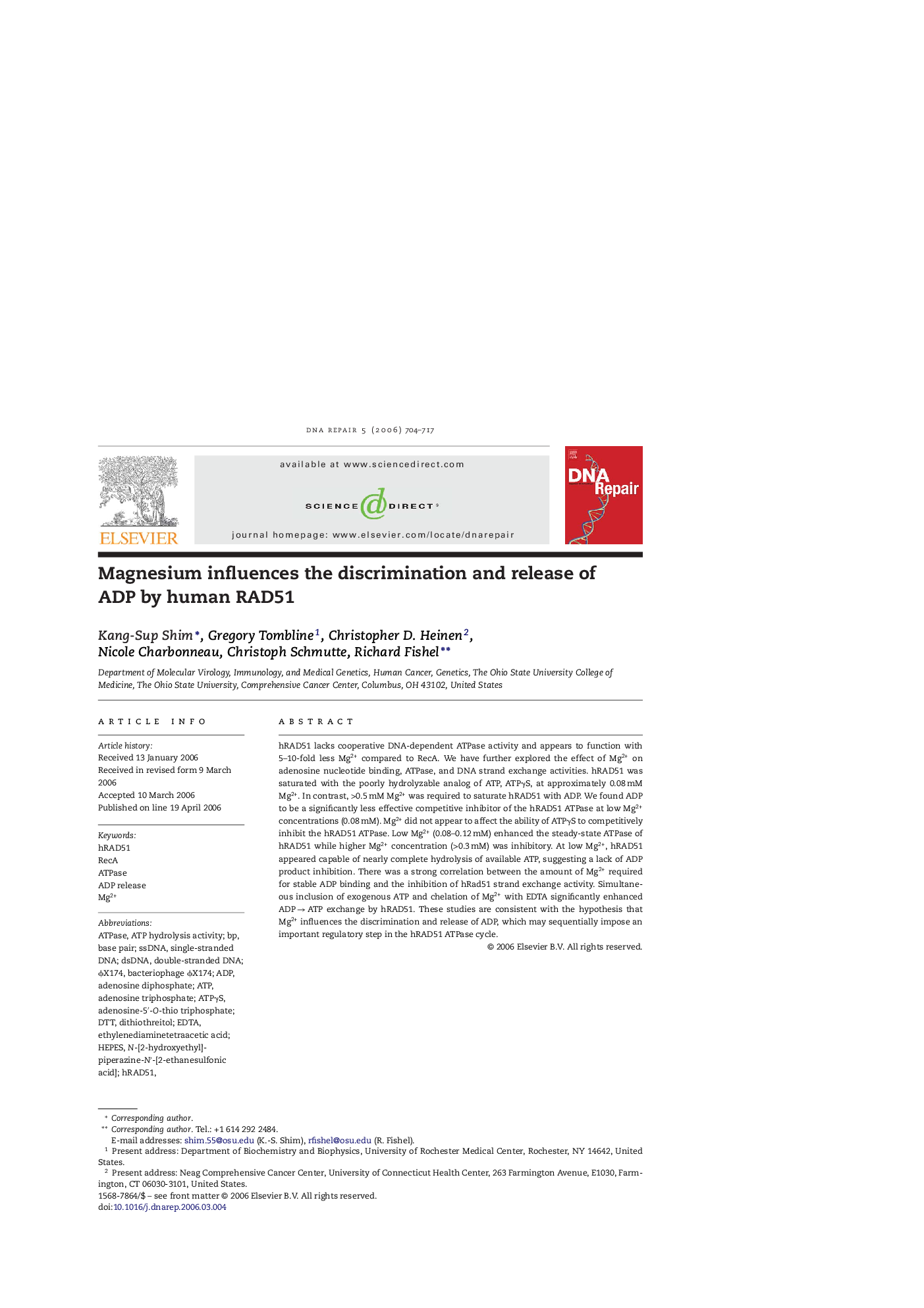| Article ID | Journal | Published Year | Pages | File Type |
|---|---|---|---|---|
| 1981146 | DNA Repair | 2006 | 14 Pages |
Abstract
hRAD51 lacks cooperative DNA-dependent ATPase activity and appears to function with 5-10-fold less Mg2+ compared to RecA. We have further explored the effect of Mg2+ on adenosine nucleotide binding, ATPase, and DNA strand exchange activities. hRAD51 was saturated with the poorly hydrolyzable analog of ATP, ATPγS, at approximately 0.08 mM Mg2+. In contrast, >0.5 mM Mg2+ was required to saturate hRAD51 with ADP. We found ADP to be a significantly less effective competitive inhibitor of the hRAD51 ATPase at low Mg2+ concentrations (0.08 mM). Mg2+ did not appear to affect the ability of ATPγS to competitively inhibit the hRAD51 ATPase. Low Mg2+ (0.08-0.12 mM) enhanced the steady-state ATPase of hRAD51 while higher Mg2+ concentration (>0.3 mM) was inhibitory. At low Mg2+, hRAD51 appeared capable of nearly complete hydrolysis of available ATP, suggesting a lack of ADP product inhibition. There was a strong correlation between the amount of Mg2+ required for stable ADP binding and the inhibition of hRad51 strand exchange activity. Simultaneous inclusion of exogenous ATP and chelation of Mg2+ with EDTA significantly enhanced ADP â ATP exchange by hRAD51. These studies are consistent with the hypothesis that Mg2+ influences the discrimination and release of ADP, which may sequentially impose an important regulatory step in the hRAD51 ATPase cycle.
Keywords
ΦX174dsDNAHEPESbacteriophage ϕX174HRAD51DTTNPFssDNATLCRecAADPATPγSSingle-stranded DNAdouble-stranded DNAMg2+N-[2-hydroxyethyl]piperazine-N′-[2-ethanesulfonic acid]Adenosine TriphosphateATPadenosine diphosphateEDTAEthylenediaminetetraacetic acidHuman Rad51ATPasebase pairdithiothreitolNucleotidethin layer chromatographymagnesium ion
Related Topics
Life Sciences
Biochemistry, Genetics and Molecular Biology
Biochemistry
Authors
Kang-Sup Shim, Gregory Tombline, Christopher D. Heinen, Nicole Charbonneau, Christoph Schmutte, Richard Fishel,
